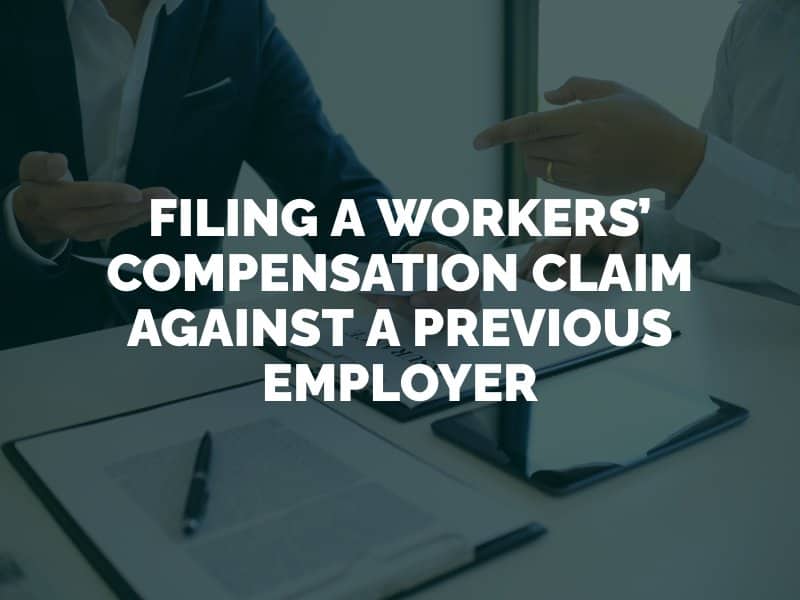In Colorado, the workers’ compensation program does not only protect you as an employee at your current job; it also protects you in the event that you suffer an injury, illness or disease that is related to the job at any point in your life – even after you quit. You retain the right to file a workers’ compensation claim against a previous employer in Colorado after you have already moved on to a different job. It can be more difficult to prove that a previous job caused your current condition, however, and to obtain fair benefits.

Yes. It is possible to file a workers’ comp insurance claim against an individual or company that you no longer work for – even if you never filed a claim or reported your injury/illness while you worked there. Colorado law allows you to seek workers’ compensation benefits from a previous employer in some situations. This is true regardless of the circumstances of your departure from the employer – whether you were fired, laid off or you quit.
If you discover an injury or illness after you have already left the job that gave you the condition, you could still be eligible for workers’ comp benefits. Workers’ comp covers all employees and ex-employees who suffer occupational injuries, illnesses or mental health conditions related to the job. Common examples are a worker who gets fired just days after suffering an injury or a worker who discovers a latent medical condition years after leaving a job (e.g., mesothelioma related to asbestos exposure or carpal tunnel syndrome from repetitive motions).
Whether or not the injured individual still works for the employer is irrelevant, in many cases. The requirements for obtaining workers’ comp benefits remain the same, however. As someone who has moved on from a job, you will need to prove that the bodily injury or illness you are claiming arose primarily from your previous occupation. This can be more difficult as someone who no longer works at the company.
Insurance companies are generally less willing to extend workers’ compensation benefits after a worker quits or is fired from a job. Insurance companies are more suspicious of these claims and may view them as an attempt to gather benefits as retaliation against an employer for getting fired or laid off. This can make it more difficult to obtain benefits for an occupational injury or illness as an ex-employee.
Take the following steps to build the strongest possible workers’ comp claim in this scenario:
Strengthen your claim by telling others about your injury and seeking medical treatment without delay. If you stay quiet about your injury or illness and don’t see a doctor, it can be extremely difficult to recover workers’ comp benefits from a previous employer. It is also important to act quickly, as deadlines imposed by Colorado law will apply to your case.
You may encounter challenges while trying to file a workers’ compensation claim against a previous employer in Colorado. Your old employer may try to use the post-termination defense to argue that you are no longer covered as an ex-employee, for example, or important forms of evidence may no longer be available. This could lead to an insurance company rejecting your claim without properly investigating the incident.
If you run into any issues during a workers’ comp claim against a previous employer, contact a workers’ compensation attorney in Denver for assistance. A lawyer can help you file the necessary paperwork and collect evidence to support your case, as well as navigate complications connected to your specific situation.